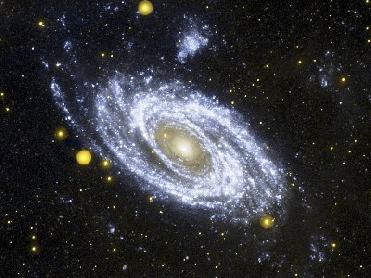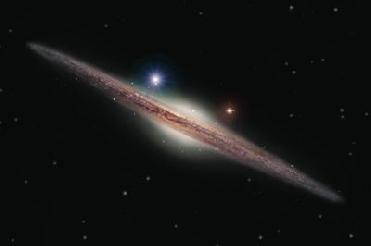
Million of galaxies surronding Milky way. A file photo.
NEW DELHI (BNS): Milky Way galaxy has survived because it was immersed in a large clump of dark matter which trapped gases inside it, scientists led by Durham University's Institute for Computational Cosmology (ICC) found.
Millions of galaxies get early exposure towards the intense heat, which failed them to survive and black holes develop in the early Universe, a new study suggests,Science Daily reported Wednesday.
The researchers said that the early Milky Way, which had begun forming stars, held on to the raw gaseous material from which further stars would be made. This material would otherwise have been evaporated by the high temperatures generated by the "ignition" of the Universe about half-a-billion years after the Big Bang.
"Tiny galaxies, inside small clumps of dark matter, were blasted away by the heat with approximate temperatures of 20,000 and 100,000 degrees centigrade," Science Daily quoted scientists, and experts of Japan's University of Tsukuba as saying.
According to the scientists, heat from the early stars and black holes rendered the dark matter barren and unable to support the development of satellite star systems of thousands of various small galaxies.
The simulations also form part of a new ICC movie � called Our Cosmic Origins � which combines ground-breaking simulations with observations of galaxies to track the evolution of the Milky Way over the 13-billion-year history of the Universe, it said.
"The validity of the standard model of our Universe hinges on finding a satisfactory explanation for why galaxies like the Milky Way have so few companions, The simulations show that hundreds of thousands of small dark matter clumps should be orbiting the Milky Way, but they didn't form galaxies.� Science Daily quoted Joint lead investigator Professor Carlos Frenk, Director of the Institute for Computational Cosmology, at Durham University, as saying.
"We can demonstrate that it was almost impossible for these potential galaxies to survive the extreme heat generated by the first stars and black holes�.
"The heat evaporated gas from the small dark matter clumps, rendering them barren. Only a few dozen front-runners which had a head start on making stars before the Universe ignited managed to survive," he added.
 Previous Article
Previous Article Next Article
Next Article













The Indian Air Force, in its flight trials evaluation report submitted before the Defence Ministry l..
view articleAn insight into the Medium Multi-Role Combat Aircraft competition...
view articleSky enthusiasts can now spot the International Space Station (ISS) commanded by Indian-American astr..
view article